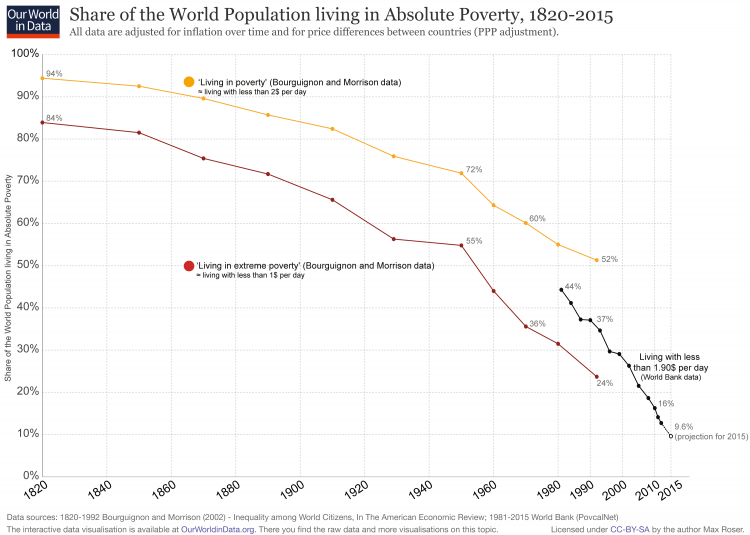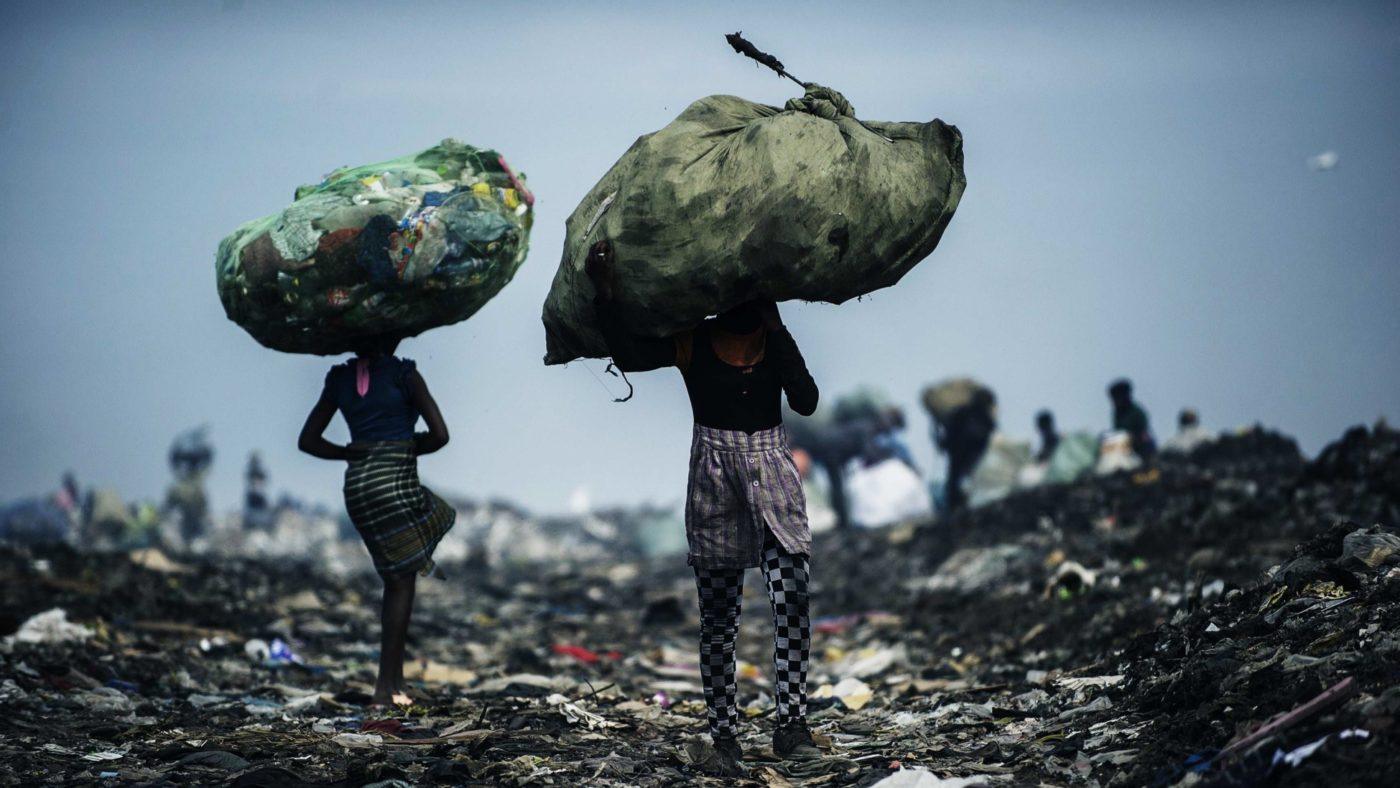As it’s Davos time, Oxfam has issued its traditional demand for a handout. Their wealth report this year informs us that a mere eight people have more wealth than the bottom 50 per cent of the world’s population. This is entirely true of course. But Oxfam’s solution is that we should take it from the rich and give it to the poor. Which is entirely wrong.
Our essential economic problem is that there are not enough rich people. Nor is their extreme wealth a problem. Our problem is poverty, not inequality.
Oxfam’s redistribution argument has been tried before and found wanting. It was the subject of the world’s largest economic experiment: the 20th century. Anyone surveying the rubble of central Europe from the Brandenburg Gate in 1989 knows that the taking and giving solution does not work. What is needed is the wealth creation strategy that we’ve been using in the period of free-market globalisation ever since.
The result of which is this:

This depicts the greatest reduction in human poverty in the history of our species. The secret of this socio-economic system being that what we consume is value and the system which produces value is the capitalist/free market hybrid. Even Karl Marx got that one right.
Oxfam’s preferred redistribution idea, however, would not work so well. Total equality of income would leave us all on US $8,000 a year or so. We Brits wouldn’t even be able to afford the level of government we currently have, let alone any food or shelter. Face it, Oxfam, it’s not going to work.
What we need is for more value to be created in order that more value can be consumed. William Nordhaus has explained why it’s capitalism that does it:
“The present study examines the importance of Schumpeterian profits in the United States economy. Schumpeterian profits are defined as those profits that arise when firms are able to appropriate the returns from innovative activity. We first show the underlying equations for Schumpeterian profits. We then estimate the value of these profits for the non-farm business economy. We conclude that only a minuscule fraction of the social returns from technological advances over the 1948-2001 period was captured by producers, indicating that most of the benefits of technological change are passed on to consumers rather than captured by producers.”
The result is that entrepreneurs get to keep some 3 per cent of the value of their creations. The other 97 per cent of the value flows to us consumers out here. Value is what we consume; value is what GDP is, what income and wealth are. And the vast majority of, near all in fact, the wealth and income created by this capitalist exploitation flows to us.
Jason Furman (no Right-wing loon like me, he’s still, just, the Chair of the Council of Economic Advisers to a Leftish American, Democratic Party, President) explains this in more detail:
“There is little dispute that Walmart’s price reductions have benefited the 120 million American workers employed outside of the retail sector. Plausible estimates of the magnitude of the savings from WalMart are enormous – a total of $263 billion in 2004, or $2,329 per household.”
Sam Walton’s heirs have some $100 billion between them, vast piles of cash. But that is a one off sum; they’ve got that wealth the once and the once only. Out here, we consumers are getting over $250 billion a year of value from that same creation, Walmart. Over the past couple of decades we’ve had $5 trillion and they’ve had $100 billion. Surely the bargain of the century?
Well, actually, it’s simply how the economy works. We consume value. And that value must be created, somewhere, by someone. Those eight entrepreneurs who have more wealth than the bottom 50 per cent do indeed have pots of filthy lucre. And they’ve got them purely by producing ever larger amounts of value that we get to consume. They’ve got rich by making us even richer.
Which is why Oxfam is so wrong here in its basic analysis. We want that last 10 per cent of humanity to rise up out of absolute poverty. We’d even like that all seven billion could share the same sort of standard of living that we’ve got. Which means that a lot more value must be created somewhere, by someone.
I’m not talking about whether the rich deserve their spoils. We are not talking rights or morality here, just pure pragmatism. The reason we’re cool with the Walmart heirs having $100 billion is because we’ve had $5 trillion out of the arrangement. And we’d like the next person who has an idea to make us $5 trillion richer to think that their kids, or even they themselves, might be allowed to keep some fraction of it.
Poverty exists and obviously we’d prefer that it didn’t. That’s why we need more rich people not fewer: because we need someone to create value for the rest of us to consume.
Seriously, who cares if they get three per cent of what we do?


